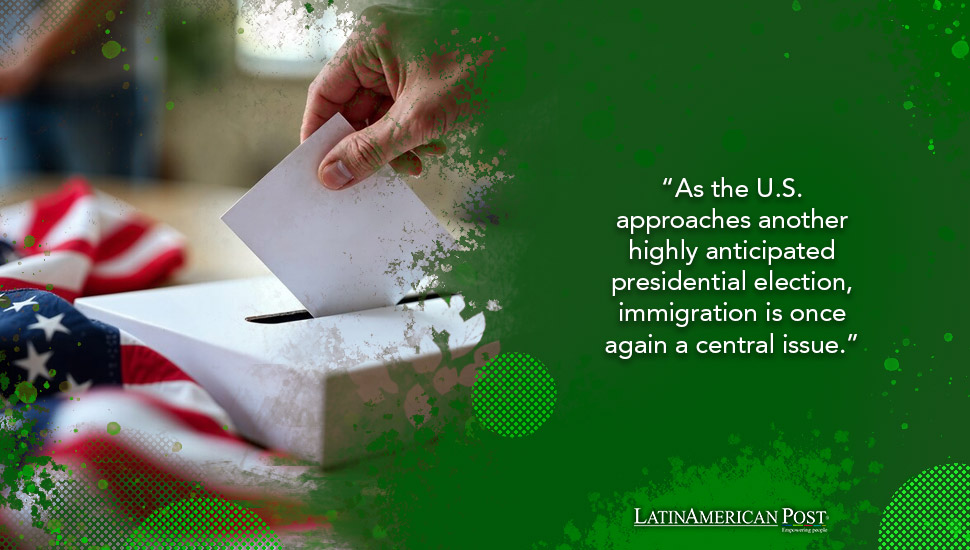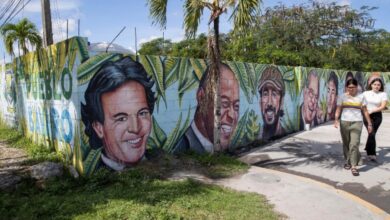Election Will Not Impact Immigration Policy in Latin America

Despite Kamala Harris’s and Donald Trump’s differing platforms, the U.S. election will not significantly change immigration policy in Latin America. Moody’s analysis shows that immigration enforcement will remain strict regardless of the election’s outcome.
Continuity Despite Election Results
As the U.S. approaches another highly anticipated presidential election, immigration is once again a central issue. However, for Latin American migrants hoping for significant policy changes, Moody’s recent analysis suggests that the election outcome will not bring the transformation many might expect. Whether Kamala Harris or Donald Trump wins, U.S. immigration policy will likely remain firm, with both candidates expected to uphold strict enforcement measures.
While Democrats and Republicans often diverge in their rhetoric regarding immigration, the reality of policy implementation has increasingly aligned over the years. Both parties have gravitated toward stricter border controls, particularly in response to the complex challenges posed by undocumented migration. Moody’s report indicates that, regardless of who takes office, the next U.S. administration will likely prioritize tightening the U.S.-Mexico border and limiting the flow of migrants from Latin America.
This consistency across political lines underscores the idea that Latin American immigration is a subject of national security for the U.S. rather than a partisan issue. Even if Harris brings a more humanitarian tone to the discussion, her administration is expected to maintain vigorous immigration enforcement similar to Trump’s policies. For Latin American migrants, this means that the obstacles they face in seeking asylum or entering the U.S. will remain as challenging as they are now.
No Major Changes Expected
Latin America has long been a region of interest for U.S. immigration policy, given the high volume of migrants from countries like Venezuela, Honduras, and Guatemala. Over the past few years, the political instability, economic hardship, and violence in several Latin American nations have driven large numbers of people to seek refuge in the U.S. These individuals often embark on perilous journeys, facing violence, extortion, and exploitation along the way, only to encounter strict border policies upon arrival in the U.S.
The upcoming U.S. election has prompted discussions on whether significant immigration reforms are on the horizon, particularly for Latin American migrants. However, Moody’s analysis suggests that these hopes are misplaced. While Kamala Harris and Donald Trump may represent different ends of the political spectrum, both are expected to maintain policies that reduce illegal immigration and restrict asylum claims.
For many migrants from Latin America, this means that their chances of entering the U.S. legally will remain slim, no matter the election’s outcome. Both candidates are committed to strengthening border security and limiting asylum claims, signaling that Latin American migrants will continue to face a complex and often impenetrable legal system.
Asylum Policies and Border Control to Remain Strict
One of the most significant concerns for Latin American migrants is the asylum process, which has become increasingly difficult to navigate under recent U.S. administrations. Both Kamala Harris and Donald Trump have signaled their intentions to continue reducing the number of asylum grants, focusing instead on discouraging irregular migration. For Latin America, where many migrants seek asylum to escape violence and persecution, these restrictions are particularly impactful.
Moody’s report indicates that the next U.S. administration, regardless of party, will likely maintain the current asylum policies. This includes limiting the number of asylum applications accepted, particularly at the U.S.-Mexico border, and increasing deterrents, such as the controversial “Remain in Mexico” policy, which forces asylum seekers to wait in Mexico while their cases are processed. For migrants fleeing violence in countries like El Salvador or Honduras, these policies present significant barriers to finding safety in the U.S.
The tightening of border controls is another area where little change is expected, even with a potential change in leadership. Trump and Harris have committed to increasing border security resources, including technology, personnel, and physical infrastructure. This means that the challenges faced by migrants at the U.S.-Mexico border will continue, regardless of who wins the election.
Latin America’s Immigration Challenges Unaffected by U.S. Elections
The political and economic instability in many Latin American countries continues to drive people northward, seeking better opportunities and safety in the U.S. However, while the U.S. election is a significant event, it is unlikely to impact the core issues facing Latin American migrants. Moody’s analysis makes it clear that U.S. immigration policies, particularly regarding Latin America, will remain essentially the same regardless of the outcome.
For many in Latin America, the U.S. election might seem like a potential turning point, but the broader trends in U.S. immigration enforcement have been consistent for years. The global pandemic, economic crises, and political tensions have only exacerbated these issues, making it even more unlikely that the U.S. will open its doors to more significant numbers of migrants.
Latin American governments must look beyond U.S. elections for solutions to immigration challenges. Instead of hoping for a more lenient U.S. administration, these nations must focus on improving domestic conditions and strengthening regional cooperation to address migration at its roots. The solutions lie within Latin America, from economic reforms to tackling violence and corruption.
Also read: The Woke Movement: A US Import Misguided in Latin America
The U.S. presidential election may grab global headlines, but its impact on immigration policy will be minimal for Latin America. Whether Kamala Harris or Donald Trump wins, U.S. immigration enforcement will remain strict, with limited asylum opportunities and robust border security measures. For Latin American migrants, the challenges they face will persist as the U.S. continues to prioritize domestic interests over comprehensive immigration reform.





